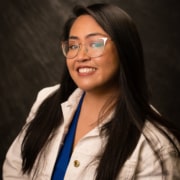A Day in the Life of an SLPA
By: Frankie Ferretti, M.S., CCC-SLP
Published: 6/11/2025
Are you wondering what it is like to be a speech and language pathology assistant (SLPA)? Perhaps you are thinking about taking a break between undergrad and graduate school. Maybe you are looking to gain experience in the field and earn a paycheck as you march on to your ASHA CCCs. Having worked as an SLPA in California from 2017 – 2020 in clinics and schools, I can tell you that this career path is an excellent consideration!
Speech pathology assistants are in high demand, with more states acknowledging the need for skilled support. Even ASHA has begun to recognize the importance of standardizing the requirements for SLPA practice with the institution of their assistant certification. Due to the current restrictions on the assistant scope of practice, the main need for SLPAs is found in the educational and private practice sectors. However, I would not be surprised if this trend continues to evolve as access to specialized training improves and demand remains steady.
So, what can an SLPA do? While there are variations on the legal requirements from state to state, the main responsibilities of an assistant largely center on implementing therapy. Under the license and supervision of a CCC-SLP, speech therapy assistants follow treatment plans, strategically select activities to target goals, use evidence-based practice, and collect data. Additionally, SLPAs can prepare materials and assist in administrative duties, making them an overall asset to the speech therapy team.
To be successful as an SLPA, here are three recommendations from my personal experience:
1. Have a strong understanding of the foundations. While some states only require a high school diploma to practice as an assistant, I highly suggest an associates or bachelor’s in communication sciences and disorders. This knowledge is crucial to the ethical implementation of speech and language techniques.
2. Identify a mentor. There is a philosophical difference between a supervisor and a mentor. Many CCC-SLPs are excellent practitioners, but they may not have the time, energy, or teaching skills necessary for supporting your success. Ask strategic questions to gauge these metrics before committing to a supervisor.
3. Be a self-starter. With the rise of technology, access to trainings, videos, and resource materials has grown exponentially. Create consistent space in your day to continue to expand your knowledge and hone your clinical skills. It is important to acknowledge the gaps in your skills and seek out the appropriate bridges.
With these pillars in place, the SLPA role can be extremely rewarding as a standalone career or as a launching pad to the CCC-SLP!



